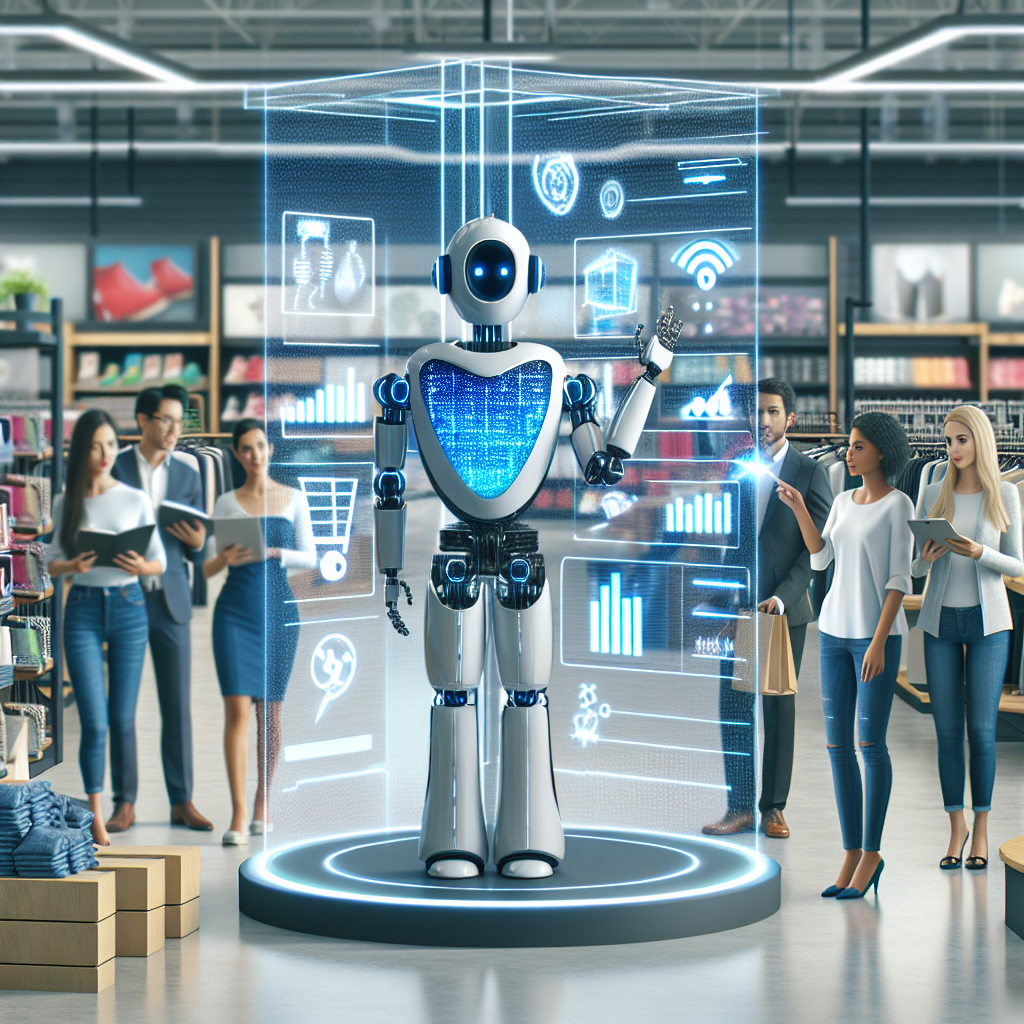The Future of AI in Retail: Personalizing Customer Experience
Artificial Intelligence (AI) has been transforming various industries, and retail is no exception. With the rise of e-commerce and changing consumer preferences, retailers are turning to AI to enhance the customer experience and stay ahead of the competition. AI technology offers retailers the ability to personalize interactions with customers, provide personalized product recommendations, streamline operations, and improve overall customer satisfaction.
Personalizing Customer Experience
One of the key benefits of AI in retail is its ability to personalize the customer experience. By analyzing a customer’s past interactions with a brand, AI can tailor product recommendations, promotions, and communication to meet the individual preferences of each customer. This level of personalization helps retailers build stronger relationships with customers, increase sales, and drive customer loyalty.
AI-powered chatbots are another tool that retailers are using to personalize the customer experience. Chatbots can provide real-time assistance to customers, answer questions, and offer personalized recommendations based on the customer’s preferences and browsing history. This level of personalized assistance can help customers make more informed purchasing decisions and improve their overall shopping experience.
In addition to personalizing product recommendations and customer service, AI can also help retailers optimize their pricing strategies. By analyzing market trends, competitor pricing, and customer behavior, AI algorithms can recommend optimal pricing strategies to maximize sales and profitability. This dynamic pricing strategy allows retailers to stay competitive in a rapidly changing market and respond quickly to changes in demand.
Streamlining Operations
AI technology can also help retailers streamline their operations and improve efficiency. From inventory management to supply chain optimization, AI algorithms can analyze vast amounts of data to identify patterns, predict demand, and optimize processes. This level of automation can help retailers reduce costs, minimize stockouts, and improve overall operational efficiency.
For example, AI-powered inventory management systems can help retailers maintain optimal inventory levels by predicting demand, identifying slow-moving products, and automating reorder processes. This level of automation can help retailers reduce carrying costs, improve cash flow, and minimize the risk of stockouts.
AI can also help retailers improve the efficiency of their supply chain by optimizing routes, reducing transportation costs, and minimizing delivery times. By analyzing historical data, market trends, and real-time information, AI algorithms can recommend the most cost-effective and efficient routes for deliveries, helping retailers reduce costs and improve customer satisfaction.
Improving Customer Satisfaction
Ultimately, the goal of AI in retail is to improve customer satisfaction and drive revenue growth. By personalizing the customer experience, streamlining operations, and optimizing pricing strategies, retailers can build stronger relationships with customers, increase sales, and drive customer loyalty.
AI-powered customer analytics can help retailers gain valuable insights into customer preferences, behavior, and buying patterns. By analyzing this data, retailers can identify trends, predict future buying behavior, and tailor marketing campaigns to meet the needs of their customers. This level of customer intelligence can help retailers improve customer satisfaction, increase sales, and drive revenue growth.
In addition to personalizing the customer experience and improving operational efficiency, AI can also help retailers enhance the in-store shopping experience. By implementing AI-powered technologies such as smart mirrors, interactive displays, and virtual try-on tools, retailers can create a more engaging and personalized shopping experience for customers. This level of innovation can help retailers differentiate themselves from competitors, drive foot traffic, and increase sales.
FAQs
Q: How can AI help retailers personalize the customer experience?
A: AI can help retailers personalize the customer experience by analyzing customer data, predicting preferences, and tailoring product recommendations, promotions, and communication to meet the individual needs of each customer.
Q: How can AI help retailers streamline operations?
A: AI can help retailers streamline operations by automating tasks, optimizing processes, and analyzing data to identify inefficiencies and opportunities for improvement. From inventory management to supply chain optimization, AI can help retailers improve efficiency and reduce costs.
Q: How can AI help retailers improve customer satisfaction?
A: AI can help retailers improve customer satisfaction by personalizing the customer experience, optimizing pricing strategies, and enhancing the in-store shopping experience. By leveraging AI technology, retailers can build stronger relationships with customers, increase sales, and drive customer loyalty.
In conclusion, the future of AI in retail is bright. By personalizing the customer experience, streamlining operations, and improving customer satisfaction, retailers can stay ahead of the competition and drive revenue growth. With the right AI-powered tools and strategies, retailers can create a more engaging and personalized shopping experience for customers, build stronger relationships, and increase sales. As AI technology continues to evolve and improve, retailers that embrace AI will be well-positioned to thrive in a rapidly changing market.

